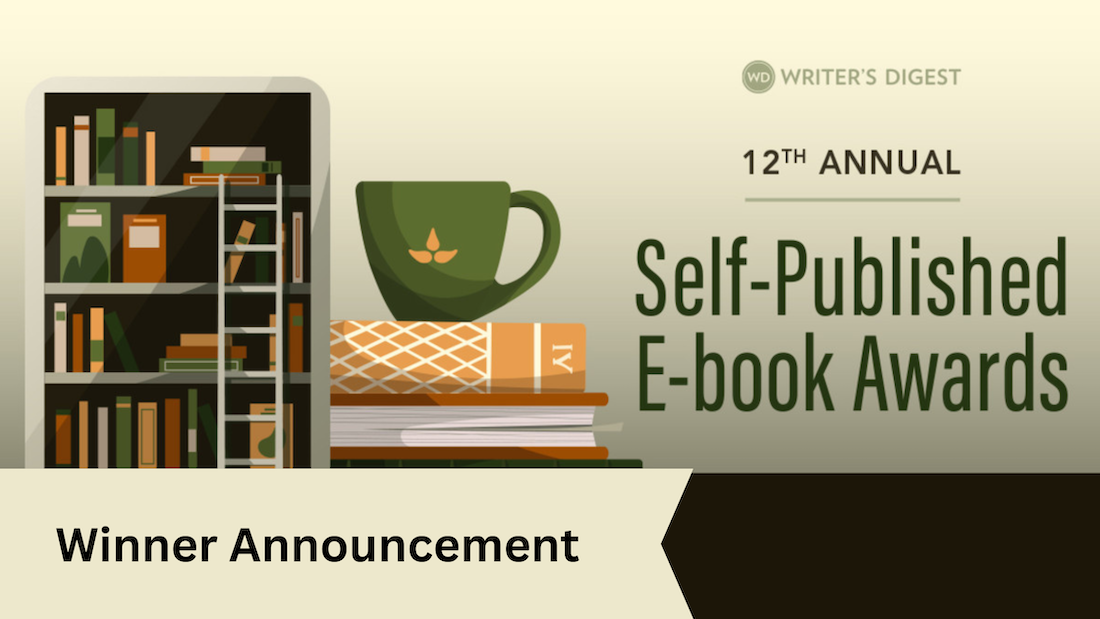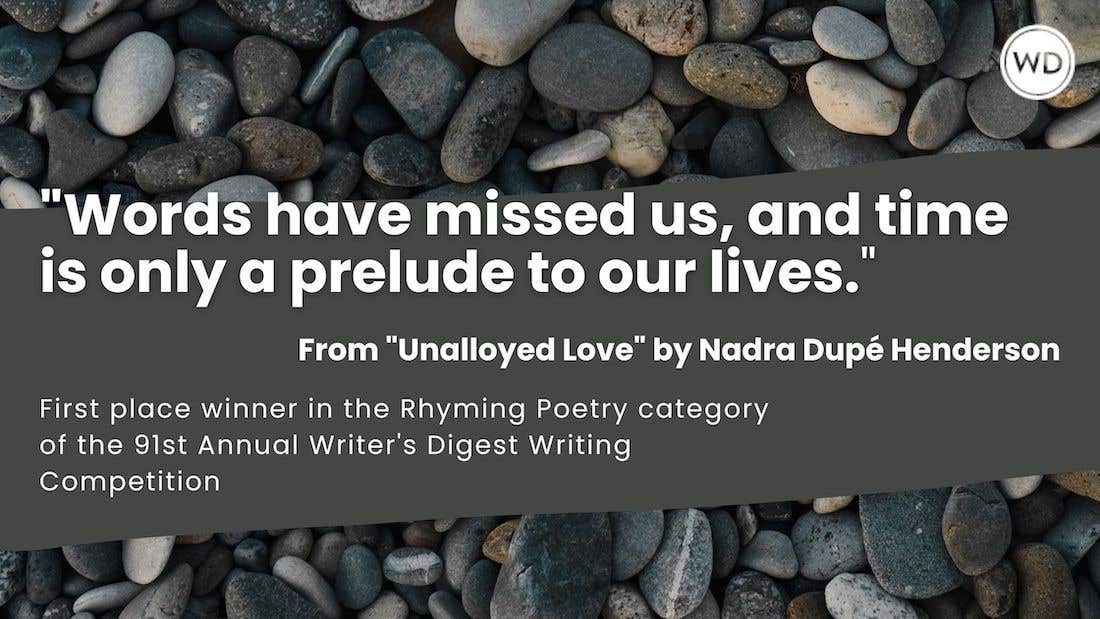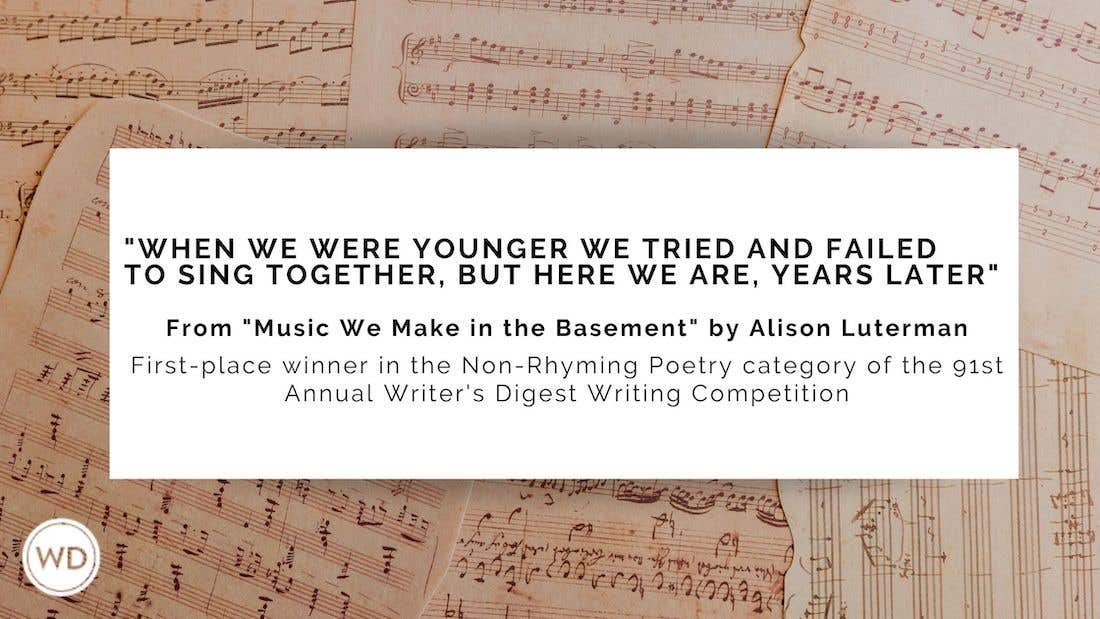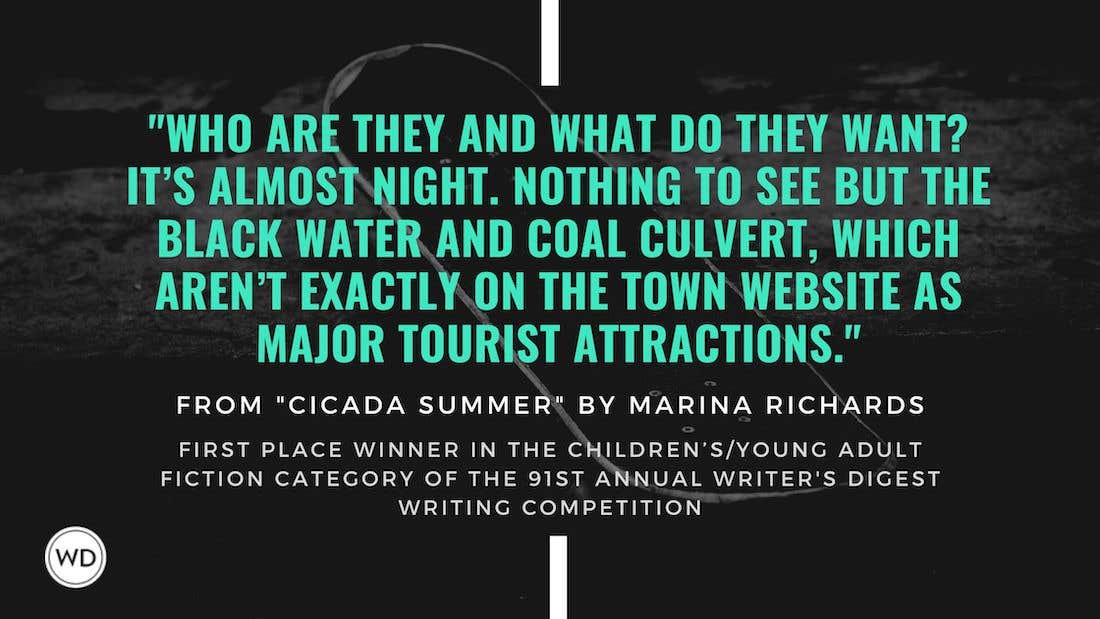Interview with Grand Prize Winner: John Moir
Grand-prize winner John Moir’s love for the environment turned into a smart move for his writing career. by Scott Francis
What is your current occupation?
I now spend more than half of my time on independent writing projects that are primarily works of narrative nonfiction with a focus on science and the environment. I also work part-time as a staff writer for the National Science Teachers Association. It’s a great science-writing job because it is interesting, flexible, and has given me a stable foundation from which to purse my independent article- and book-writing projects. I also do keynote talks for environmental organizations and writing groups.
What compelled you to write “Condors in a Coalmine?”
Several years ago, a friend and I spent a day along the Big Sur coastline searching for some of the first condors released back into the wild by the condor recovery program. Late in the afternoon, we found five black-and-white condors circling overhead in a blue sky. Although I didn’t know it then, it was a life-changing moment. These magnificent birds with 10-foot wingspans intrigued me, and with my background as both a writer and birder, a natural next step for me was to start writing some newspaper articles about this highly endangered species. In 2004, Birding magazine asked me to do a feature story on the condor recovery effort. When I finished the article, it dawned on me that the struggle to save the condor was an amazing tale, filled with interesting characters and conflicts and that it could be a book. I went on to write RETURN OF THE CONDOR: The Race To Save Our Largest Bird From Extinction.
Following the book’s publication, environmental groups waged a successful political battle to ban lead ammunition in California to protect condors and other wildlife. Condors are carrion eaters and if they inadvertently consume poisonous lead bullet fragments left behind in hunter-shot game they can sicken and die. In private conversations with me, biologists had confided that they wondered if humans—like condors—might also be endangered by these microscopic bullet fragments. But no one had figured out a practical method to test this theory. Last year, a North Dakota physician heard of the condor’s problems with lead and found an ingenious way to see if humans were also in jeopardy. On his own, he made the connection that humans eating hunter-shot game were at risk for sublethal lead poisoning. It’s a terrific story of one man’s quest to bring this issue to light, showing that the condor acted like the proverbial canary in a coal mine by revealing a hidden threat to humans.
What, in your opinion, makes for a successful magazine or newspaper article?
A feature article isn’t much different from any other type of writing. It comes down to captivating readers beginning with the first word and keeping that momentum going right through to the end of the story. That happens best with compelling characters and an engaging narrative.
Also, getting the words right is the difference between a passable piece of writing and one in which the page dances with magic. One of my favorite stories about writing craft is when George Plimpton asked Ernest Hemingway why he had rewritten the ending to A Farewell to Arms 39 times before he was satisfied. Hemingway’s response: He wanted to get the words right.
Tell me about your writing background.
My earliest memories are of stories: hearing them, reading them, creating them. My brain has always been wired for stories. In addition, if there is such a thing as a curiosity gene, I seem to have an extra one. I love researching and asking questions and finding stuff out. This has led me to my work as newspaper reporter, teacher, public affairs director, and independent journalist. For the past 15 years I’ve had the great good fortune to gradually shift more and more of my writing toward working on my own projects. It’s been a long slow pilgrimage toward “overnight success,” gradually accumulating a resume of awards and publications and building an independent writing career.
On this journey, I have written for many different publications on a wide variety of topics, both nonfiction and fiction. In the last several years I have focused much of my writing on narrative nonfiction about science and the environment. In addition, I have been fortunate in being able to combine a lot of my writing with my love of nature.
Finally, and perhaps a bit tangentially to this question, while my development as a writer has been shaped by many of the expected influences—reading a lot, writing millions of words, having writer friends—there have also been other more oblique but nevertheless important influences. Long distance running and yoga have both been great passions of mine. These practices have taught me about consistency and persistence and being present. Along the same lines, I recently took an Improv class at Stanford that also influenced my writing. Improv games train you to pay attention which is helpful when researching a story and conducting interviews.
What is the first thing you ever wrote?
It was a science fiction story that I conjured up when I was 10 years old about a small colony of humans living on Venus who discover a fleet of alien spaceships heading toward Earth with the intent to destroy it. I laboriously hunted-and-pecked this tale on a Smith Corona typewriter. It ended up being four, single-spaced pages, and I remember being so proud of it and thinking how cool it looked: a real story with the words typed on the page!
What sort of books (or other writing) inspired you when you were growing up and how do you think that shaped you as a writer?
I was an early and avid reader. I remember devouring just about any book that had a good story. I have always been partial to books about nature and loved authors such as Ernest Thompson Seton and Colin Fletcher and John Steinbeck. When you read a lot, there’s an almost osmotic process by which you absorb how words go together and how to construct a narrative.
In addition, across the evenings of my childhood, my dad would spend time reading books and telling stories to my brother and me. Even when we were young, he found full-length books we would like, often about nature. My dad was a terrific storyteller and sometimes he would make up sagas of his own that would go on for weeks at a time, each night stopping with a cliffhanger. I loved those evenings where I was immersed in stories.
Would you mind telling me about any previous projects you’ve had published or any awards you’ve received?
Awards: I have won 18 writing awards. The awards have been incredibly meaningful to my development as a writer, both in validating the merits of my work and in opening up opportunities for me. For example, an article I wrote about condors won first place for nonfiction at the 2004 East of Eden Writing Conference at the National Steinbeck Center. That award helped me to get my agent and to obtain a contract for the condor book.
Other recent awards: RETURN OF THE CONDOR was a finalist for the 2008 William Saroyan International Writing Prize sponsored by Stanford University and the William Saroyan Foundation. The book was also recognized in 2007 by the National Association of Science Writers as one of the year’s five outstanding works of science journalism.
In addition to my nonfiction work, I have also received first place awards for fiction from the California Writer’s Conference, the William Saroyan Writer’s Conference, and the East of Eden Writing Conference.
Published work: I am author of two books: RETURN OF THE CONDOR: The Race to Save Our Largest Bird from Extinction (Lyons Press) and JUST IN CASE: Disaster Preparedness and Emergency Self Help (Chronicle Books). I have also contributed to two other books: 2006 Writer's Market and The Best of Novel Advice.
In addition, I have written on many topics and have published articles and stories that appeared in publications such as the Christian Science Monitor, San Francisco Chronicle, Smithsonian Magazine, Birder's World, Orion, Audubon California, and elsewhere.
Have you always focused on writing nonfiction or do you do other types of writing as well?
About the only genre I haven’t attempted to write is a screenplay. The diversity of my writing experience has been helpful in honing my craft, and my narrative nonfiction work draws heavily on my background writing fiction and poetry.
In recent years, I have focused more and more on narrative nonfiction. I love being able to take real events and use fiction techniques to bring a story alive for readers.
What’s the best piece of writing advice you’ve ever received (and from whom)?
I spent a number of years working in journalism and public relations. But, the stories I could tell were often limited by the context of the job. I got to the point where I felt I wasn’t reaching my full writing potential. One day, I had a conversation with a wise friend who suggested connecting with writing in a different way. “Just write about something you care about,” she said. “See what happens.”
I took my friend’s advice and decided to try writing some pieces in my spare time using only two criteria: 1) the topic must interest me and 2) I could tell a good story that had heart. I began with a piece about my father’s death. As I wrote it, a floodgate of emotion opened up. I was writing something that came from deep within me, and when I finished I felt a profound sense of fulfillment. Having never done any freelancing, I sent the piece to Esquire magazine, not realizing that I had zero chance of getting it accepted. However, an Esquire editor liked it enough to take the time to send me a handwritten letter saying that while they couldn’t publish it, he thought the piece was good and he encouraged me to continue my writing. And so I did. Bit by bit, I started accumulating a resume of publications and awards. When I look back, that story about my dad was a pivotal piece of writing.
What advice would you give other writers?
I would start with the same advice that I received: write on topics that you are passionate about, write from your heart.
And, here are a couple of additional thoughts. In his book How To Write: Advice and Reflections, Pulitzer Prize-winning author Richard Rhodes recounts how he once worked for Conrad Knickerbocker, an editor with a single, rather colorful rule for achieving writing success: “Apply your ass to a chair.” If you want one rule, that’s a pretty good one. So, I guess I would say to someone starting out: Be persistent. Keep improving your craft. Have faith that everything will work out even when clouds darken the horizon. Love your work. Keep coming back to your writing chair.
What’s next for you?
I am very focused on building on the momentum my writing has generated. Right now I am hard at work on ideas for a new book. In addition, I am constantly developing compelling stories for articles—such as “Condors in a Coal Mine”—that use my interviewing and investigative skills to tell a great narrative nonfiction story. In particular, I am very interested in the stories of people working to preserve biodiversity across the planet.
Scott Francis is a former editor and author of Writer's Digest Books.








